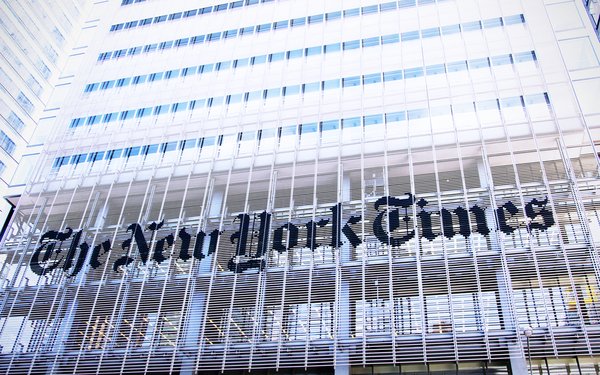Commentary
'New York Times' Tests Tougher Paywall
- by March 1, 2019

That’s a welcome development, especially since publishers face declining ad sales as Facebook, Google and Amazon take over the digital media economy.
Joshua Benton, director of the Nieman Journalism Lab at Harvard, this week confirmed with a Times spokesperson that the newspaper was piloting a stricter paywall. Benton observed the popular hack of using Google’s Chrome browser in incognito mode — which temporarily blocks a website from tracking a browser with cookies — was less effective at getting around the Times' metered paywall.
advertisement
advertisement
Good, it’s time that publishers demanded a better return on their investment in original content.
Publishers also should read the book “Free Ride: How Digital Parasites Are Destroying the Culture Business, and How the Culture Business Can Fight Back” by Robert Levine, the former executive editor of Billboard.
The book, first published in 2011, reads like a manifesto demanding anyone who creates an intellectual property should be adequately compensated for it.
As Levine explains, for too long the internet has thrived on the ethos that “information wants to be free,” the memorable phrase that influential technology thinker Steward Brand coined at a hacker convention in 1984. Brand was a former member of author Ken Kesey’s “Merry Pranksters” and publisher of the counterculture magazine the Whole Earth Catalog.
People tend to forget that Brand said in the same speech: “Information wants to be expensive, because it’s so valuable. The right information in the right place just changes your life.” Brand was making a bigger point that technology makes the distribution of information less expensive, not that it should be given away.
As much as I respect paywalls, I’ve also spent an inordinate amount of time trying to defeat them in the practice of trying to see what other publications have reported about a topic. I’ve also worked at news organizations where reporters shared tips on how to get articles for free by setting up ghost Gmail accounts and using them to register as new users at a website.
The Wall Street Journal and Financial Times have stricter paywalls that are almost impossible to pole vault in incognito mode or by using a virtual private network that’s supposed to disguise a web user’s digital fingerprints. The Boston Globe, Los Angeles Times and Dallas Morning News also have digital tollbooths impassible without payment.
The New York Times may face criticism that paywalls are bad for society because they prevent lower-income people from accessing news and information, exacerbating disparities between rich and poor. That may be the case, but until the revolution comes, publishers should harden their paywalls.


